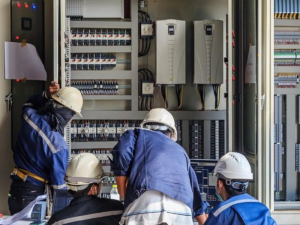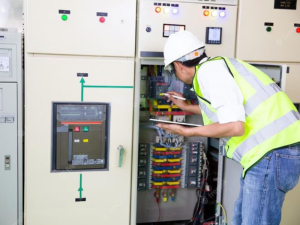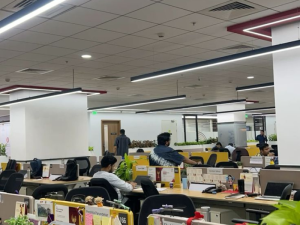WAPDA: Introduction, Hydropower Projects, Electricity Bills, and Water Management in Pakistan
WAPDA Introduction
The Water and Power Development Authority (WAPDA) is one of Pakistan’s most significant institutions. Established in 1958, WAPDA plays a crucial role in managing the country’s water resources and power supply. Over the years, it has developed numerous dams, hydropower projects, and irrigation systems that have strengthened Pakistan’s energy and agricultural sectors. Electric Supply Authority work directly impacts millions of lives by ensuring water availability, electricity supply, and flood control.
Moreover, Electric Supply Authority has contributed to the economic growth of Pakistan by supporting industrial and agricultural development. Its projects have created thousands of jobs and have attracted domestic and international investment. Beyond power generation, Electric Supply Authority focuses on water management, including reservoirs, canals, and flood control measures.
With climate change and water scarcity becoming significant concerns, WAPDA’s role has grown even more important. Citizens often interact with Electric Supply Authority through electricity bills, water supply, or employment opportunities. Understanding Electric Supply Authority structure, operations, and services is essential for everyone, especially students, professionals, and those interested in government jobs. This article will explore WAPDA’s hydropower projects, its role in water management, and practical tips for managing your electricity bills effectively.

Top 5 WAPDA Hydropower Projects
Electric Supply Authority has developed numerous hydropower projects to meet Pakistan’s growing electricity demands. Among these, five projects are particularly notable:
- Tarbela Dam
Located on the Indus River, Tarbela Dam is one of the world’s largest earth-filled dams. It provides electricity, irrigation water, and flood control benefits. - Mangla Dam
Mangla Dam is vital for water storage and hydropower generation. It also supports agriculture and local communities in Punjab and Azad Kashmir. - Ghazi-Barotha Hydropower Project
This project efficiently generates electricity by using the Indus River’s water flow. It contributes around 1,450 MW to Pakistan’s energy grid. - Diamer-Bhasha Dam
Under construction, Diamer-Bhasha Dam is a major initiative to store water, produce hydropower, and manage floods in the northern regions. - Hub Dam
Hub Dam supplies water for irrigation and supports hydropower generation in Balochistan. It also helps manage water for Karachi and nearby areas.
These projects demonstrate WAPDA’s commitment to sustainable energy. They play a crucial role in Pakistan’s economic growth and environmental management. By investing in hydropower, Electric Supply Authority reduces reliance on fossil fuels and enhances energy security.
Understanding Your WAPDA Electricity Bill
Understanding your WAPDA electricity bill is essential to manage household expenses effectively. Each bill contains critical information, including:
- Customer number
- Meter reading and billing period
- Units consumed
- Tariff rate
- Total payable amount
Many customers often overlook the details and end up paying extra. By reviewing the bill carefully, you can identify errors or unusual consumption patterns. Transitioning to digital methods, Electric Supply Authority now offers online bill checking and payment services. This service saves time and ensures convenience.
Additionally, timely payment of electricity bills prevents penalties and service interruptions. Customers can also contact Electric Supply Authority helplines for clarifications. Understanding your bill helps in energy conservation, budgeting, and awareness of electricity usage trends. By adopting simple habits, like switching off unused appliances, you can reduce electricity costs and contribute to energy efficiency.

WAPDA’s Role in Water Management in Pakistan
Water management is one of Electric Supply Authority primary responsibilities. Pakistan relies heavily on river systems, and WAPDA ensures their proper utilization. Its responsibilities include:
- Construction and maintenance of dams and reservoirs
- Flood control and irrigation
- Efficient water distribution to agricultural and urban areas
Projects like Tarbela and Mangla Dams not only generate electricity but also regulate water flow for irrigation. Electric Supply Authority also monitors river levels and provides early warnings during floods. Effective water management supports agriculture, prevents water scarcity, and safeguards communities. With climate change, WAPDA’s work in water conservation is increasingly important. It collaborates with provincial authorities and international organizations to implement advanced technologies. Citizens benefit directly through reliable water supply, enhanced agricultural productivity, and reduced flood risks.
- What is WAPDA?
Hydropower Authority stands for the Water and Power Development Authority. It is responsible for electricity generation, water management, and infrastructure projects in Pakistan. - Where to check WAPDA bills?
Electric Supply Authority bills can be checked online through the official WAPDA website or through mobile apps offered by distribution companies. - How to apply for WAPDA internship?
WAPDA internships are advertised on the official website. Interested students can submit applications online and follow the selection process mentioned in the notification. - How does WAPDA help in flood control?
Through dams, reservoirs, and early warning systems, WAPDA manages river water flow to prevent floods. - Can citizens visit WAPDA projects?
Yes, Hydropower Authority allows visits to certain projects like Tarbela Dam for educational tours and public awareness programs.
How Electric Supply Authority Impacts Daily Life
WAPDA’s work directly affects millions of Pakistanis. From ensuring electricity supply to managing water resources, its services touch every home and industry. Reliable electricity supports businesses, schools, hospitals, and households. Efficient water management ensures crops grow and communities have safe drinking water. Furthermore, Electric Supply Authority provides employment opportunities, including internships, teaching, and technical jobs. Its hydropower projects also contribute to environmental sustainability by reducing reliance on non-renewable energy sources. By understanding Electric Supply Authority operations, citizens can better manage bills, conserve energy, and appreciate the value of water resources. Electric Supply Authority continues to be a cornerstone of Pakistan’s infrastructure development and economic stability.

Conclusion
Hydropower Authority plays a critical role in Pakistan’s energy and water sectors. Its Top 5 Hydropower Projects demonstrate commitment to sustainable electricity generation. Understanding your WAPDA electricity bill allows for better household budgeting and energy conservation. Meanwhile, Electric Supply Authority effective management of water resources ensures agricultural growth, flood control, and environmental sustainability.
Whether you are a student, professional, or citizen, knowing about Electric Supply Authority helps in making informed decisions regarding energy and water usage. Additionally, opportunities like WAPDA internships provide valuable experience for young professionals. Overall, Electric Supply Authority continues to support Pakistan’s economic growth and the well-being of its people.
APPLY FOR THIS JOB CLICK HERE https://jobonlineapply.com/
